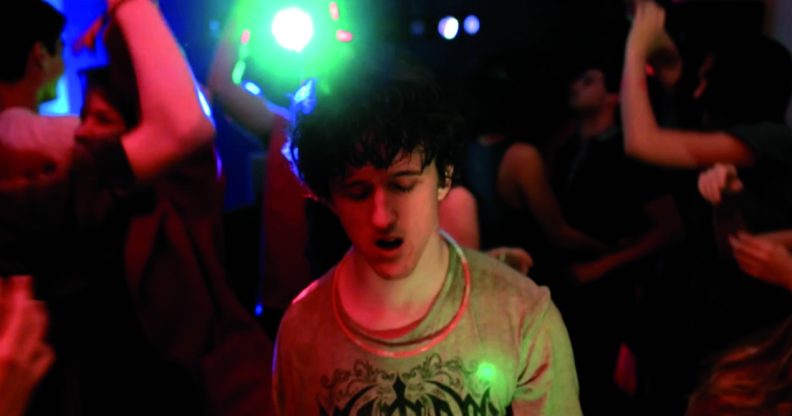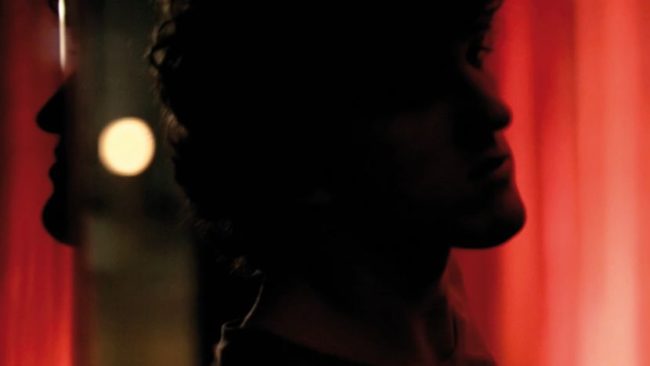BFI Flare: Pulse — Conceptually brilliant, with uncomfortably realistic representation of pain ★★★

(BFI)
This film about a gay disabled teen searching for love in a new body is a deep look at queerness and disability – sometimes so deep that it is hard to watch.
Written by and starring Daniel Monks, Pulse follows Olly, a gay and disabled teen who swaps bodies with a young woman in an attempt to be attractive and escape his own slowly breaking body.
The body swap is presented simply as a larger form of organ donation, allowing people to move their consciences into a donated body if they become ill.
Based loosely on Monks’ own feelings and experiences, Pulse is a brutal and touching exploration of bodies and love as we watch Olly face a different kind of isolation after their ‘transition’.
Rejected by their friends one by one, Olly throws themselves into the world of clubbing and casual sex that has now become available to their attractive new body.
The newest addition to the ‘body swap’ genre is imaginative and is a promising debut for Monks, yet its often harsh nature does not make it an easy film to watch or enjoy.
Olly’s pain is a consistent note throughout the film, both with the physical pain they face in their masculine body which is rapidly deteriorating, and the emotional pain caused by their isolation and rejection in their feminine body.
Confronting their life-long attraction to their heterosexual male best friend, Olly takes a risk and confesses all. As they are cruelly shut down, it’s clear that Pulse will not be a kind film.

(BFI)After the successful swap into a woman’s body, Monks shares the role with actress Jaimee Peasley. Both actors are shown interchangeably throughout, which can make the audience question the reality of the narrative from Olly’s point of view.
Monks and Peasley’s portrayals of Olly are talented and visceral, as Olly’s frustration and isolation are expertly shown throughout regardless of the body they are in.
However, while showing the negative sides to Olly adds depth to the story, the acidic nature of the character actively resists the sympathy of the audience.
Even as Olly wets themselves early on in the film, their barbed nature towards the other characters stops any sympathy.
Soaked in their own urine, Olly physically and verbally lashes out at their mother in a well performed but heartwrenching moment, where the pain of both characters is clear as Olly sobs and screams on the bathroom floor.

(BFI)
Pulse does not shy away from the darker side of hookup culture. The audience is forced to watch as Olly repeatedly becomes sick and later as it is heavily implied that they were raped.
As Olly walks home with their dress tattered, barefoot and with a vacant look on their face, the scene is difficult to watch as being in Olly’s position is a familiar fear to many.
Although each of the emotionally fraught and painful moments of the film would be hard to watch in isolation, combining several gutwrenching scenes into its 85-minute runtime makes Pulse highly uncomfortable but poignant.
The film poses several questions to the audience about sexuality and does not shy away from the more explicit elements of these, including several moral questions about sex and using other people’s bodies in more ways than one.
Related: Love, Scott — a compassionate call to arms against hate crime
Pulse is interspersed with home video footage from Monks, which helps to drive home the point of the film and prompts the audience to see that while the scenario itself is fantastical, many of the feelings behind it are not.
The film is brutally honest, both with Olly’s experiences with sex and relationships in both bodies and their troubled search to find happiness.
However, Pulse is more of a piece of art than an entertaining film to watch. It has merit with its message and performances but does not lend itself to repeat viewings due to its sheer brutal nature.

